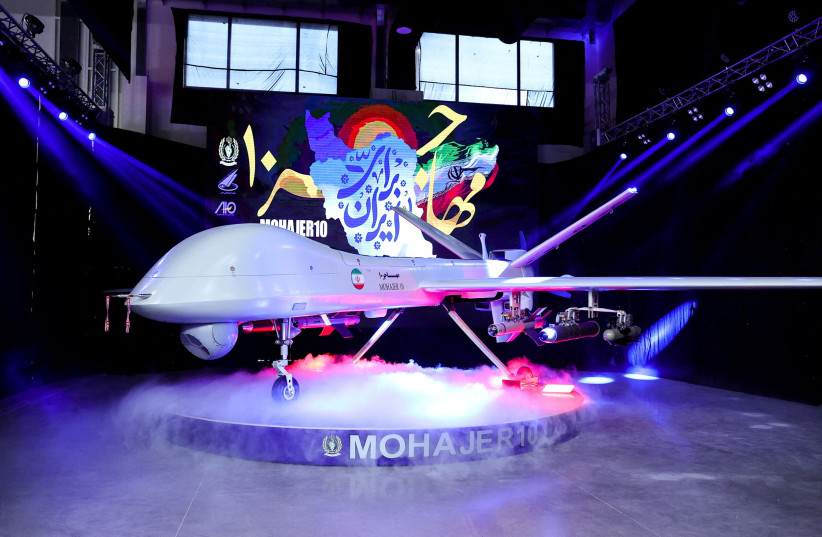The US Treasury has sanctioned a multinational network involved in supporting Iran’s drone and military aircraft programs.
Iran has already been sanctioned for this type of weapons activity, previously sending kamikaze drones to Russia. These new sanctions, however, paint a dim picture of how far the drone program has spread.
For years, Iran has sought to acquire parts for drones from companies in Europe and elsewhere, often under the guise of acquiring commercial technology that had dual-use military applications.
The US Department of the Treasury’s Office of Foreign Assets Control (OFAC) “sanctioned seven individuals and four entities based in Iran, the People’s Republic of China (PRC), Russia, and [Turkey] in connection with Iran’s unmanned aerial vehicle (UAV) and military aircraft development.
This network has facilitated shipments and financial transactions in support of the US-designated Iran Aircraft Manufacturing Industrial Company’s (HESA’s) UAV and military aircraft production, procurement, and maintenance activities. OFAC is also updating HESA’s entry on the Specially Designated Nationals and Blocked Persons (SDN) List to include its new alias which it has used to evade sanctions and export control measures,” the US said on Tuesday.

The new sanctions were mentioned in a social media post by Brett McGurk, the White House coordinator for the Middle East and North Africa.
“Iran’s continued, deliberate proliferation of its UAVs enables Russia, its proxies in the Middle East, and other destabilizing actors to undermine global stability,” said Under Secretary of the Treasury for Terrorism and Financial Intelligence Brian E. Nelson. “The United States will continue to take action against Iran’s UAV procurement networks, and encourages jurisdictions to exercise the due diligence necessary to prevent the export of these components to Iran.”
The US's efforts to discourage production of Iranian drones
The US went after a number of companies in March with sanctions relating to the Iranian drones. These Shahed drones, or UAVs, have been sent to Russia and were used against civilians in the Russia-Ukraine war. The new sanctions explanation says that HESA makes the Ababil and Shahed family of drones, which is controlled by Iran’s Defense Ministry.
It has provided support to Iran’s Islamic Revolutionary Guard Corps (IRGC). “As of 2022, HESA has used the name Shahin Co. in contracts with overseas-based suppliers in an apparent effort to evade US sanctions and export controls. Because HESA continues to procure sensitive UAV components under this name, OFAC is updating HESA’s entry on the SDN List to include Shahin as an alias.”
The US has now also singled out companies in China. There is a list of them in the new sanctions that relate to companies that “facilitate the supply of aerospace-grade radar altimeter systems, GPS and VHF antennas, sensors, and other hardware with possible UAV applications to HESA.” The report also highlights Russia-based companies involved in the supply of propellers.
In addition, Turkish-based “money exchangers” are linked to the support of HESA’s procurement from various suppliers.
